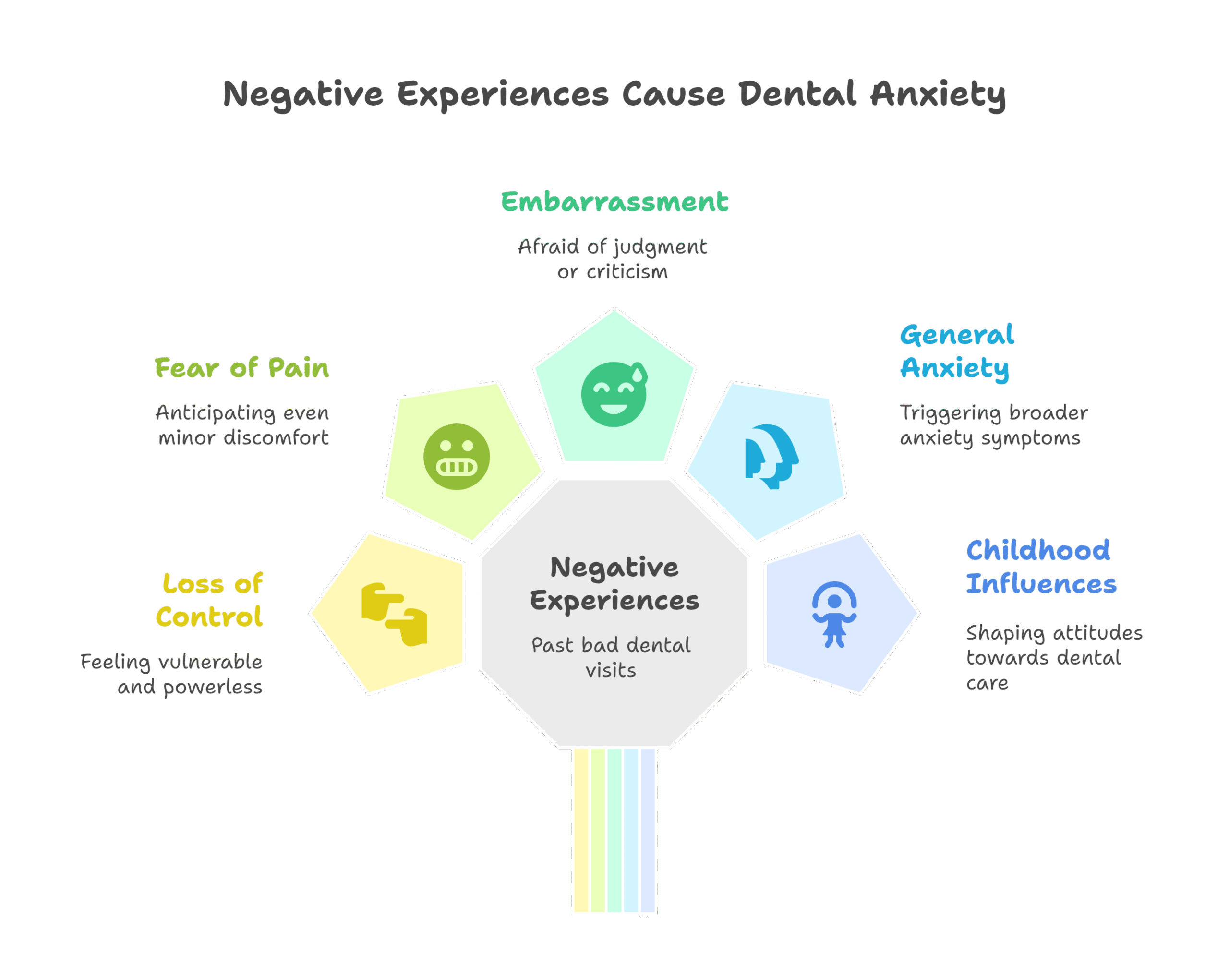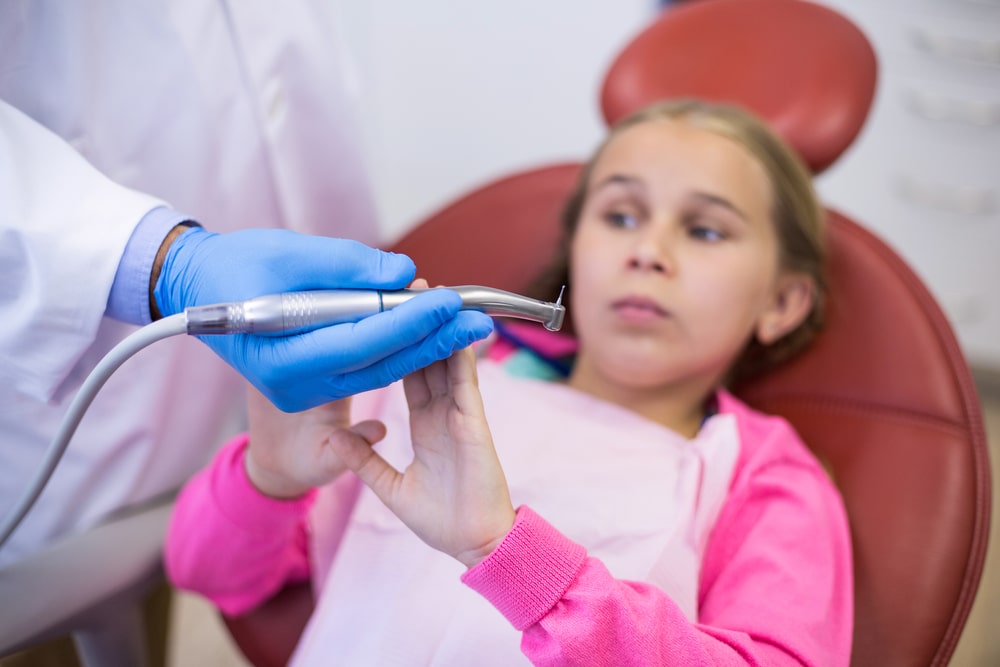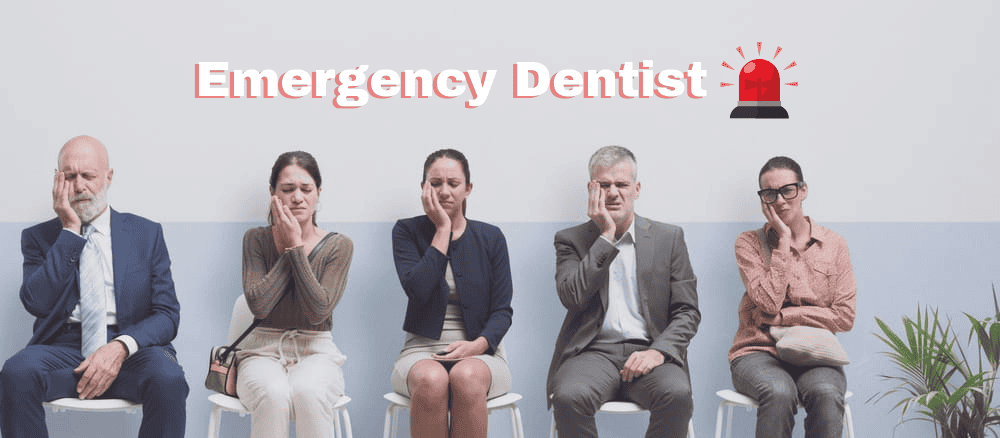Navigating the world of dental care can feel overwhelming, especially when fear and anxiety enter the picture. You might be weighing your options, wondering if your concerns are normal, or searching for a practice that truly understands what you’re going through. It’s a critical evaluation point, and finding a dental team that acknowledges and addresses these deeply personal challenges is paramount to making the right choice for your oral health. You’re not alone in these feelings. At Smile Makers Dental Care, we understand that for many, a visit to the dentist isn’t just a routine appointment—it can be a significant source of stress.
Our goal is to illuminate the often-misunderstood landscape of dental anxiety and phobia, empowering you with the knowledge to identify your feelings and find a path toward comfortable, effective care. We offer a full spectrum of comprehensive dental services, always with your comfort in mind.
The Pervasive Nature of Dental Fear
It might surprise you to learn just how common dental fear truly is. According to the American Dental Association, dental anxiety affects a staggering 36% of adults globally, with a significant 12% experiencing these fears in their most extreme forms.
This isn’t just a fleeting nervousness; it’s a deep-seated apprehension that can profoundly impact an individual’s life. In fact, up to 1 in 4 adults actively avoid dental care due to anxiety.
This avoidance isn’t without consequences, as research published in the Journal of Dental Research indicates that individuals with dental anxiety are four times more likely to miss appointments and twice as likely to postpone treatments, leading to demonstrably poorer oral health outcomes, including more missing teeth and a higher incidence of decay.
The Psychology Behind Dental Fear
Understanding the roots of dental fear is the first step toward overcoming it. It’s a complex interplay of past experiences, personal anxieties, and even misconceptions.
Common Causes That Fuel Anxiety
The origins of dental anxiety are varied, but several recurring themes emerge from research:

- Negative Past Experiences: This is by far the most significant factor. The British Dental Journal reports that approximately 75% of fearful patients attribute their anxiety to a prior negative dental experience. This could be anything from a painful procedure to a feeling of being unheard or rushed.
- Feeling a Loss of Control: The reclining position, the open mouth, and the instruments can make many feel vulnerable and powerless.
- Fear of Pain: Anticipation of pain, even if minor, can be a powerful deterrent. This is often linked to past experiences or stories from others.
- Embarrassment: Some individuals feel embarrassed about the condition of their teeth or oral hygiene, leading to avoidance.
- General Anxiety Disorders: For some, dental anxiety is a specific manifestation of broader anxiety or panic disorders, making the dental environment particularly challenging.
- Childhood Influences: Public Health England highlights that 40% of adults with dental anxiety can trace its origin back to negative childhood dental experiences. These early encounters can leave lasting impressions that shape future perceptions of dental care.
- Gender Disparity: Interestingly, the European Journal of Oral Sciences found that women are twice as likely as men to report high levels of dental anxiety, suggesting a potential gender component in how fear is experienced or reported.
Specific Phobias Related to Dentistry
Beyond general anxiety, some individuals experience specific phobias that are triggered by dental settings:
- Dentophobia: This is the overarching term for an intense, irrational fear of dentists or dental procedures themselves.
- Trypanophobia: A pronounced fear of needles or injections. This is particularly relevant in dentistry where local anesthetics are often administered.
- Emetophobia: The fear of vomiting. For some, the sensations in the mouth or the feeling of gagging can trigger this phobia.
- Iatrophobia: A broader fear of doctors or medical settings in general, which naturally extends to dental offices.
These specific phobias, as recognized in the Diagnostic and Statistical Manual of Mental Disorders (DSM-5), are not merely slight discomforts but can lead to severe avoidance and distress, making even routine check-ups seem insurmountable.
Recognizing the Signs: Symptoms of Dental Anxiety
Identifying dental anxiety within yourself or a loved one is crucial. The symptoms can manifest in both physical and emotional ways:
Physiological Symptoms
These are the body’s involuntary reactions to perceived threat or stress:

- Increased Heart Rate: Your heart might start to pound or race simply at the thought of an appointment.
- Sweating: Clammy hands or excessive perspiration.
- Trembling or Shaking: A noticeable tremor in your hands or body.
- Difficulty Breathing: Shortness of breath, hyperventilation, or feeling like you can’t get enough air.
- Dizziness: Feeling lightheaded or faint.
- Muscle Tension: Clenched jaw, tense shoulders, or a rigid posture.
The Anxiety & Depression Association of America notes these physical responses as typical signs of the body’s “fight or flight” mechanism.
Psychological Symptoms
These are the mental and emotional manifestations of dental fear:
- Avoidance: Procrastinating or outright canceling appointments.
- Panic: Feelings of intense fear or dread before or during a dental visit.
- Feelings of Helplessness: A sense of being trapped or unable to escape the situation.
- Rumination: Obsessive thoughts about the dental appointment, replaying past negative experiences.
- Difficulty Sleeping: Insomnia or restless nights leading up to an appointment.
- Irritability: Snapping at others or feeling on edge.
- Feeling Nauseous: A general sense of uneasiness or an upset stomach.
These psychological symptoms, as described in the British Dental Journal, can be just as debilitating as the physical ones, making the prospect of dental care daunting.
The Long-Term Impact of Unaddressed Dental Anxiety
The cycle of dental anxiety leading to avoidance, and avoidance leading to deteriorating oral health, is a serious concern.
Beyond the statistics of missed appointments and increased decay, the long-term impact extends to overall well-being.
Chronic oral health issues can lead to pain, infection, difficulty eating, and even affect self-esteem and social interactions.
Timely preventive care is essential, but it becomes challenging when anxiety stands in the way.
Breaking this cycle requires understanding and a proactive approach from both the patient and the dental care provider.
Self-Assessment: Understanding Your Level of Anxiety
Understanding the degree of your dental anxiety is empowering. Consider these questions to gauge your feelings:

- Do you feel a sense of dread or panic just thinking about a dental appointment?
- Have you cancelled or postponed dental visits multiple times due to fear?
- Do you experience physical symptoms like a racing heart, sweating, or trembling before or during a dental procedure?
- Do you feel a loss of control when in the dental chair?
- Does the thought of specific dental instruments (like needles or drills) cause intense fear?
- Have negative past dental experiences significantly shaped your current view of dentistry?
- Do you lose sleep or find yourself constantly thinking about an upcoming dental visit?
If you answered yes to several of these questions, it’s a strong indicator that you are experiencing dental anxiety or possibly a dental phobia.
Recognizing this is the first and most vital step toward seeking a practice that is equipped and committed to helping you overcome these challenges.
Managing Your Anxiety: A Glimpse into Solutions
Identifying your anxiety is powerful, but knowing there are solutions is transformative.
At Smile Makers Dental Care, we prioritize creating an environment where your concerns are not just heard but actively addressed. Our approach involves:
- Empathetic Communication: We take the time to listen to your fears, explain every step of your treatment, and ensure you feel in control. We believe in clear, gentle communication to build trust.
- Comfort-Focused Environment: From the moment you step into our Brampton clinic, our aim is to create a relaxing and welcoming space, designed to put you at ease.
- Gentle Techniques: Dr. Shetty’s gentle and professional approach, backed by over 20 years of experience, means careful technique and a focus on minimizing discomfort.
- Advanced Technology: We utilize the latest dental technology, which can often lead to more efficient and less invasive procedures, reducing overall anxiety.
- Sedation Options: For those with moderate to severe anxiety, we offer sedation options to help you relax through your treatment, ensuring a calm and comfortable experience.
We believe that no one should forego essential dental care due to fear. Our commitment is to partner with you, providing the support and solutions you need to make your dental health a priority, without the burden of overwhelming anxiety.
Frequently Asked Questions About Dental Anxiety
Many individuals have similar questions when evaluating dental solutions, especially concerning anxiety. Here are some common inquiries:
Q: Is dental anxiety truly a common issue, or am I overreacting?
A: You are absolutely not overreacting. As we’ve discussed, dental anxiety affects a significant portion of the adult population globally. It’s a genuine and valid concern, and recognizing it is a sign of self-awareness, not weakness. Our team acknowledges and respects these feelings entirely.
Q: Can dental anxiety really be overcome, or will I always dread dental visits?
A: Yes, absolutely! While it may take time and the right approach, dental anxiety can be significantly reduced, and for many, entirely overcome. The key is finding a dental practice that understands your fears and offers tailored strategies, like empathetic communication, a comfortable environment, and potentially sedation options.
Q: What if I haven’t been to the dentist in many years because of my fear? Will I be judged?
A: Never. At Smile Makers Dental Care, we understand that fear can lead to long periods of avoidance. Our priority is your health and comfort, not judgment. We’re here to help you get back on track, no matter how long it’s been, with a supportive and understanding approach.
Q: How do you handle extreme cases of dental phobia, like a fear of needles (trypanophobia)?
A: For patients with specific phobias like trypanophobia, we employ a variety of strategies. This includes detailed explanations of what to expect, using topical numbing gels before injections, slow and gentle administration of anesthetics, and discussing sedation options to help you relax completely during the process. Our team is trained to provide a reassuring presence and respond to your comfort levels at every moment.
Q: Will addressing my anxiety mean my dental treatments will be more expensive?
A: Not necessarily. While certain comfort-enhancing measures, like sedation, may have an associated cost, the overall goal is to enable you to receive the care you need without undue stress. Avoiding necessary treatment due to anxiety often leads to more extensive and costly procedures down the line. Investing in a positive dental experience can be a cost-effective long-term strategy for your oral health. We can also discuss options for maintaining your smile through cosmetic dentistry procedures once your anxiety is managed.
Q: What’s the first step if I suspect I have dental anxiety?
A: The very first step is acknowledging your feelings. Then, reach out to a dental practice that explicitly addresses dental anxiety, like Smile Makers Dental Care. We recommend starting with a simple consultation to discuss your fears without any pressure, allowing us to understand your concerns and explain how we can help.
Empowering Your Decision for a Fear-Free Future
Recognizing and understanding dental anxiety and phobia is a significant step toward reclaiming your oral health and overall well-being. You’ve evaluated the problem, and now it’s time to evaluate the solution. At Smile Makers Dental Care, under the experienced and gentle guidance of Dr. Seema Shetty, we pride ourselves on being that trusted partner. We don’t just treat teeth; we care for people, understanding that genuine comfort and trust are foundational to effective dental care. If you’re ready to explore a dental experience where your anxieties are met with empathy, expertise, and tailored solutions, we invite you to connect with us. Take the first step toward a comfortable and confident dental journey.
Book a consultation with Smile Makers Dental Care today and discover the difference a truly understanding dental team can make.




